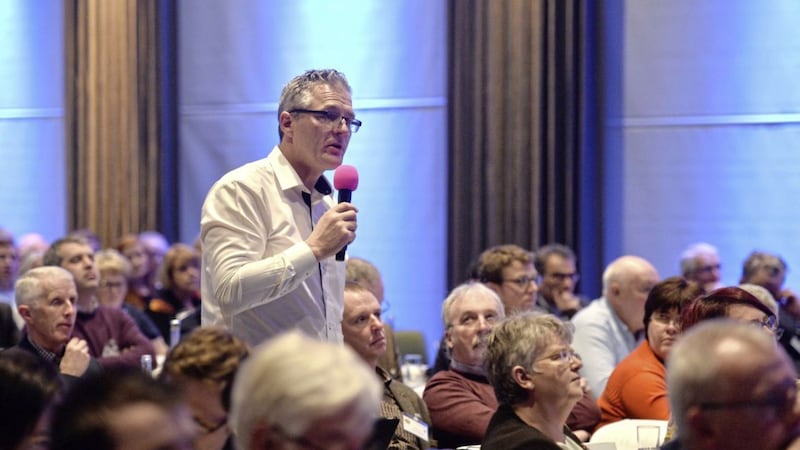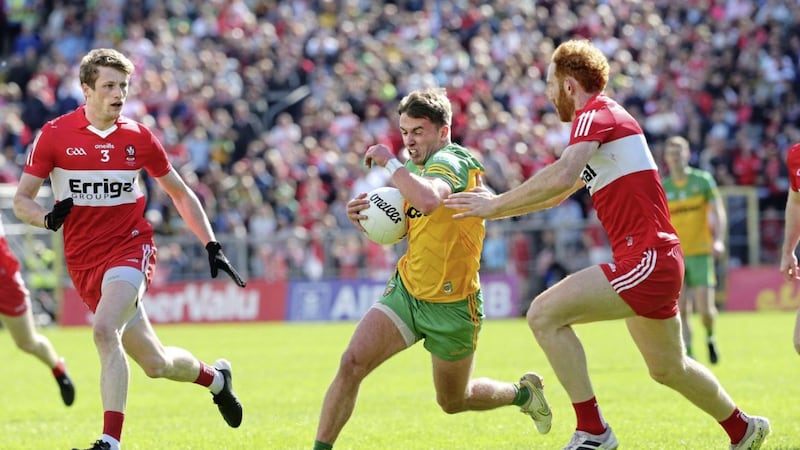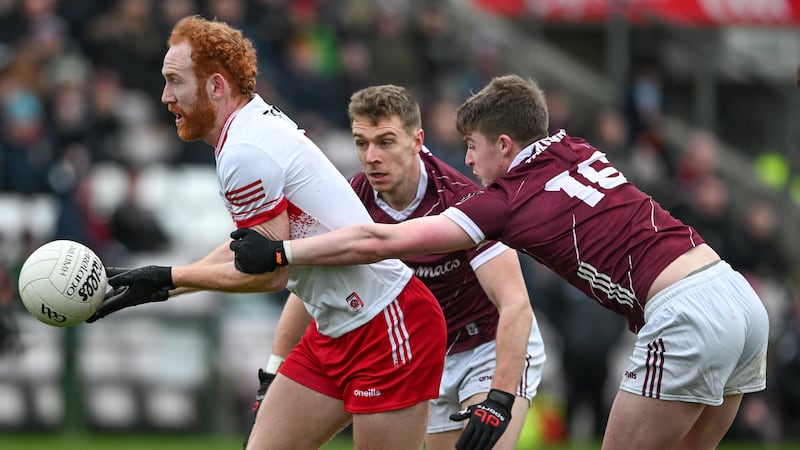GAA presidential nominee Jarlath Burns says the inter-county game is a “juggernaut that we’re just about in control of” – but that players deserve more respect.
The former Armagh captain will go before next year’s Annual Congress as the first nominee from the six counties since Fermanagh native Peter Quinn, who served as president from 1991 to 1994.
Having served his club in various guises as well as in a number of roles within Croke Park, including twice on the GAA’s management committee, the Medical, Scientific and Welfare Committee and as head of the Standing Committee for Playing Rules, it’s a move that has long been speculated on.
In an exclusive interview that will appear in The Irish News later this week, Burns lays out his vision for the GAA during what would be a three-year term from 2021 to 2024.
He admits that the level of commitment and finance required to sustain the inter-county game at present is a concern, and revealed that the GAA has been making moves to attempt to standardise payments to backroom staff.
“The county team scenario is a juggernaut, and one that we’re just about in control of. There’s a cottage industry of backroom staff that’s become a hidden economy.
“I know county chairmen have been meeting with John Horan and they’re trying to standardise payments to all those people. That’s a big challenge.
“We are at a stage where we have to seriously question this juggernaut. It’s something county boards worry about.
“But you have to remember that the millennial generation are very keen on training. Most young people are in gyms.
“Because we’re an amateur game, you can opt in and opt out. It’s a major test. If you play in the first round of the championship, whether you play well or badly, you’ve made massive sacrifices to get there.”
The Silverbridge native - who’s aiming to become only the sixth president from the six counties after Padraig MacNamee (1938-43), Seamus MacFerran (1955-58), fellow Armagh man Alf Murray (1964-67), Paddy MacFlynn (1979-82), and Peter Quinn - says his first objective in office would be to hold a strategic review of the association’s work.
Burns was the players’ representative when the GAA last undertook a major review in 2001 under Sean McCague’s presidency, and feels that taking stock of the organisation’s position within Irish society is pivotal.
“The strategic review will probably lead to a special congress, which could very well lead to some radical proposals, based on the consultations we do and the deductions of the committee,” says Burns.
Part of the review would involve an in-depth look at how the GAA allocates its funding, particularly in relation to coaching and games development, which has been a bone of contention amid Dublin’s rise.
Burns also believes that it would “send out a strong message” from the GAA if it had a president from the six counties at a time when a border poll is part of the political discussion.
The principal of St Paul’s HS, Bessbrook reiterated his belief that the GAA must take a firm position in favour of Irish unity in the event of reunification being on the ballot paper.
He also claimed that comments he’d made in the past about the GAA dropping the national anthem and flag from its activities had been “taken out of context and misrepresented”.
“A Jarlath Burns presidency would never have any motion to Congress to change the important position of the flag and the anthem. What I said was totally misrepresented,” he says.
“There’s no time I feel more in touch with who I am as an Irish person than when I stand and face the flag for my anthem.
“It was the same when I played for Armagh, before the ball was thrown in, it was always a very special moment to stand for the anthem of my country.”








